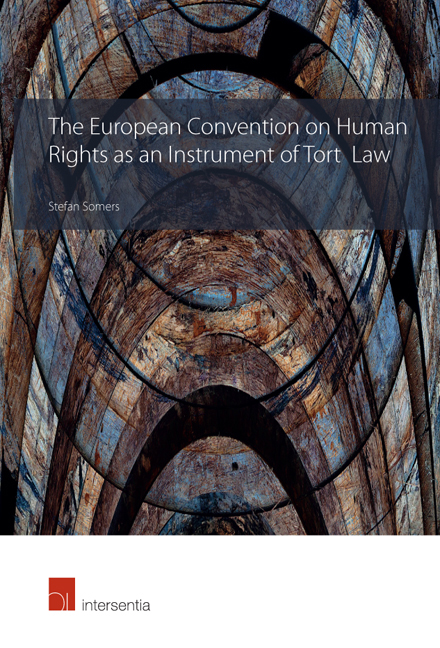Book contents
- Frontmatter
- Dedication
- Contents
- List of Cases
- Introduction
- Chapter 1 Human Rights in Horizontal Relations
- Chapter 2 Articles 13 and 41 ECHR and State Liability
- Chapter 3 The Interaction between Articles 13 and 41 ECHR and Liability in Horizontal Relations
- Chapter 4 Tort Liability as a Violation of Human Rights
- Chapter 5 Article 41 as an Alternative Tort Law System
- Chapter 6 General Outline of Article 41 of the Convention
- Chapter 7 Damages
- Chapter 8 Fault and Blameworthiness
- Chapter 9 Causality
- Chapter 10 Restitution
- Conclusion
- Bibliography
- About the Author
Chapter 6 - General Outline of Article 41 of the Convention
Published online by Cambridge University Press: 31 January 2019
- Frontmatter
- Dedication
- Contents
- List of Cases
- Introduction
- Chapter 1 Human Rights in Horizontal Relations
- Chapter 2 Articles 13 and 41 ECHR and State Liability
- Chapter 3 The Interaction between Articles 13 and 41 ECHR and Liability in Horizontal Relations
- Chapter 4 Tort Liability as a Violation of Human Rights
- Chapter 5 Article 41 as an Alternative Tort Law System
- Chapter 6 General Outline of Article 41 of the Convention
- Chapter 7 Damages
- Chapter 8 Fault and Blameworthiness
- Chapter 9 Causality
- Chapter 10 Restitution
- Conclusion
- Bibliography
- About the Author
Summary
The previous chapters indicated how the Convention can influence private law in general and tort law in particular. For tort law, it has been shown that Art. 41 of the Convention is very important, both as an interpretative tool in the context of Art. 13 of the Convention and as a possibility for the Court to act as a tort law institution in its own way. This raises the question of how this provision is applied. This chapter will deal with the basic outline of this provision.
THE TEXT OF ARTICLE 41 OF THE CONVENTION
Although the text of Art. 41 (previously Art. 50) has changed since the 11th protocol entered into force, the provision did not change substantially. The text is now a bit shorter than before and explicitly refers to the protocols, but this did not mark a substantial change because the Court implicitly judged that the previous Art. 50 could not only be applied when the Convention is violated but also in cases where the protocols are violated. Today Art. 41 reads as follows:
If the Court finds that there has been a violation of the Convention or the Protocols thereto, and if the internal law of the High Contracting Party concerned allows only partial reparation to be made, the Court shall, if necessary, afford just satisfaction to the injured party.
There are four points of concern to be found in the wording of the text. The first is the fact that Art. 41 can only be applied if the Court finds a violation of the Convention. The second point is related to the principle of subsidiarity. The text indicates that the provision can only be applied ’ if the internal law of the High Contracting Party concerned allows only partial reparation to be made ‘. It thus seems that Art. 41 is only applicable if a national legal system does not provide full compensation. Thirdly, the provision states that the Court does not have to apply the Convention when the first two conditions are fulfilled, but that the Court only has to afford just satisfaction ‘if necessary’. This raises the question of whether the Court has a discretionary competence to decide when a satisfaction is necessary.
- Type
- Chapter
- Information
- Publisher: IntersentiaPrint publication year: 2018



